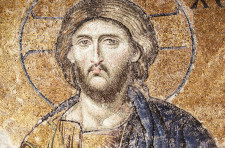Sunday, August 20, 2023, Monthly Program via Zoom.
“First Ladies and Women’s Rights: Daughters of the Enlightenment“
A Presentation by Elizabeth Thacker-Estrada and Patricia Southard
…
A community of scholars based in
the San Francisco Bay Area
Sunday, August 20, 2023, Monthly Program via Zoom.
“First Ladies and Women’s Rights: Daughters of the Enlightenment“
A Presentation by Elizabeth Thacker-Estrada and Patricia Southard
…
Fall 2020: Revealing San Francisco’s Hidden 19th-Century Black History: A Tour of California Historical Society Artifacts, lecture by Susan D. Anderson, SF History Days (video here)
Summer 2020: Harlem of the West: The Fillmore Jazz Era and Redevelopment, online lecture by Elizabeth Pepin Silva
Fall 2019: An event-filled two-day excursion to Sacramento
Fall 2019: Tour of Marin Civic Center and presentation by member Bonnie Portnoy on The Man Beneath the Paint: Tilden Daken
Summer 2019: Reading of Judith Offer's play, Scenes from the Life of Julia Morgan
Fall 2018: Public Program, "South Asians in the South Bay: The Privileged Immigrants"
Spring 2018: Excursion to Niles area of Fremont with historic train ride and silent film museum
Spring 2018: The California and the West study group initiated the two public programs on "The Future of the Past in the Digital Age" and Benjamin Madley's talk on An American Genocide: The United States and the California Indian Catastrophe, 1846–1873.
Fall 2017: Martinez Adobe Fandango; Public Program: “Siberia and California: Connections During the Russian Revolution and Civil War”
Fall 2016: Amador County
Summer 2016: San Francisco Presidio
Winter 2016: Berkeley History Center
Spring 2015: Sonoma Plaza
Winter 2015: San Francisco Public Library
Summer 2014: Red Oak Victory and World War II Homefront National Historic Park, Richmond
Spring 2014: Los Gatos History Museum, "American Bohemia: The Cats Estate in Los Gatos”
Winter 2014: Tour of California Historical Society exhibition on Juana Briones, January 25
Summer 2013: Green Gulch Farm Zen Center visit, August 15
Spring 2013: Visits to Vallejo Naval and Historical Museum and the McCune Collection at the Vallejo Public Library, April 13
Saturday, July 5, 10 am, via Zoom. Marilyn Geary will present.
 Writing and Revising Narrative History
Writing and Revising Narrative History Megan Kate Nelson is a historian and writer, with a BA from Harvard and a PhD in American Studies from the University of Iowa. She is the author of four books: Saving Yellowstone: Exploration and Preservation in Reconstruction America (Scribner 2022); The Three-Cornered War: The Union, the Confederacy, and Native Peoples in the Fight for the West (Scribner 2020; a finalist for the 2021 Pulitzer Prize in History); Ruin Nation: Destruction and the American Civil War (Georgia, 2012); and Trembling Earth: A Cultural History of the Okefenokee Swamp (Georgia, 2005). She writes about the Civil War, the U.S. West, and American culture for The New York Times, Washington Post, The Atlantic, Smithsonian Magazine, and TIME. Before leaving academia to write full-time in 2014, she taught U.S. history and American Studies at Texas Tech University, Cal State Fullerton, Harvard, and Brown. She grew up in Colorado but now lives in Boston with her husband and two cats.
Megan Kate Nelson is a historian and writer, with a BA from Harvard and a PhD in American Studies from the University of Iowa. She is the author of four books: Saving Yellowstone: Exploration and Preservation in Reconstruction America (Scribner 2022); The Three-Cornered War: The Union, the Confederacy, and Native Peoples in the Fight for the West (Scribner 2020; a finalist for the 2021 Pulitzer Prize in History); Ruin Nation: Destruction and the American Civil War (Georgia, 2012); and Trembling Earth: A Cultural History of the Okefenokee Swamp (Georgia, 2005). She writes about the Civil War, the U.S. West, and American culture for The New York Times, Washington Post, The Atlantic, Smithsonian Magazine, and TIME. Before leaving academia to write full-time in 2014, she taught U.S. history and American Studies at Texas Tech University, Cal State Fullerton, Harvard, and Brown. She grew up in Colorado but now lives in Boston with her husband and two cats. Despite the growing scholarly work at the intersection of religion and technology, how to characterize their relationship remains a matter of dispute for historians of technology. Some have argued that the problem arises arises from using poor terminology, and from giving primacy to technological knowledge over religious knowledge. Enrico Beltramini takes a different view. He argues instead that the cause of this dispute stems from competing ideas about our basic understanding of the universe. The history of technology is founded on a secular understanding, while religion wants to sustain a post-secular worldview that protects the sense of the sacred. Enrico argues that the harmonization of religion and history of technology requires a reconsideration of the theoretical apparatus that governs the religion-secular divide.
Enrico’s presentation is based on his essay “When Religion Meets History of Technology. Secularism and the Problem of the Sacred,” History and Technology , Vol. 39, Issue 3-4 (2024), 316-327. This essay is a response to an essay by Jennifer Karns Alexander in an earlier issue.
Despite the growing scholarly work at the intersection of religion and technology, how to characterize their relationship remains a matter of dispute for historians of technology. Some have argued that the problem arises arises from using poor terminology, and from giving primacy to technological knowledge over religious knowledge. Enrico Beltramini takes a different view. He argues instead that the cause of this dispute stems from competing ideas about our basic understanding of the universe. The history of technology is founded on a secular understanding, while religion wants to sustain a post-secular worldview that protects the sense of the sacred. Enrico argues that the harmonization of religion and history of technology requires a reconsideration of the theoretical apparatus that governs the religion-secular divide.
Enrico’s presentation is based on his essay “When Religion Meets History of Technology. Secularism and the Problem of the Sacred,” History and Technology , Vol. 39, Issue 3-4 (2024), 316-327. This essay is a response to an essay by Jennifer Karns Alexander in an earlier issue.
 After a full academic career, first in Italy and later in California, Enrico accepted early retirement from teaching during the COVID pandemic while at Notre Dame de Namur University. He now maintains an academic affiliation with the university, dedicating himself to research, writing, and active participation in scholarly conferences.
After a full academic career, first in Italy and later in California, Enrico accepted early retirement from teaching during the COVID pandemic while at Notre Dame de Namur University. He now maintains an academic affiliation with the university, dedicating himself to research, writing, and active participation in scholarly conferences.The Institute for Historical Study is a community of researchers, writers, and artists. Our common bond is a devotion to history in its many forms. Through wide-ranging programs, we share research, ideas, and practical advice and provide a public forum for the discussion of history.
Members: Please submit news of your history-related publications, lectures, awards, research finds, etc. to info@instituteforhistoricalstudy.org.
We welcome all men and women who have a commitment to historical study, which may be demonstrated in one or more of the following ways...
Institute for Historical Study
1399 Queens Road
Berkeley, CA 94708
IHS Admin

